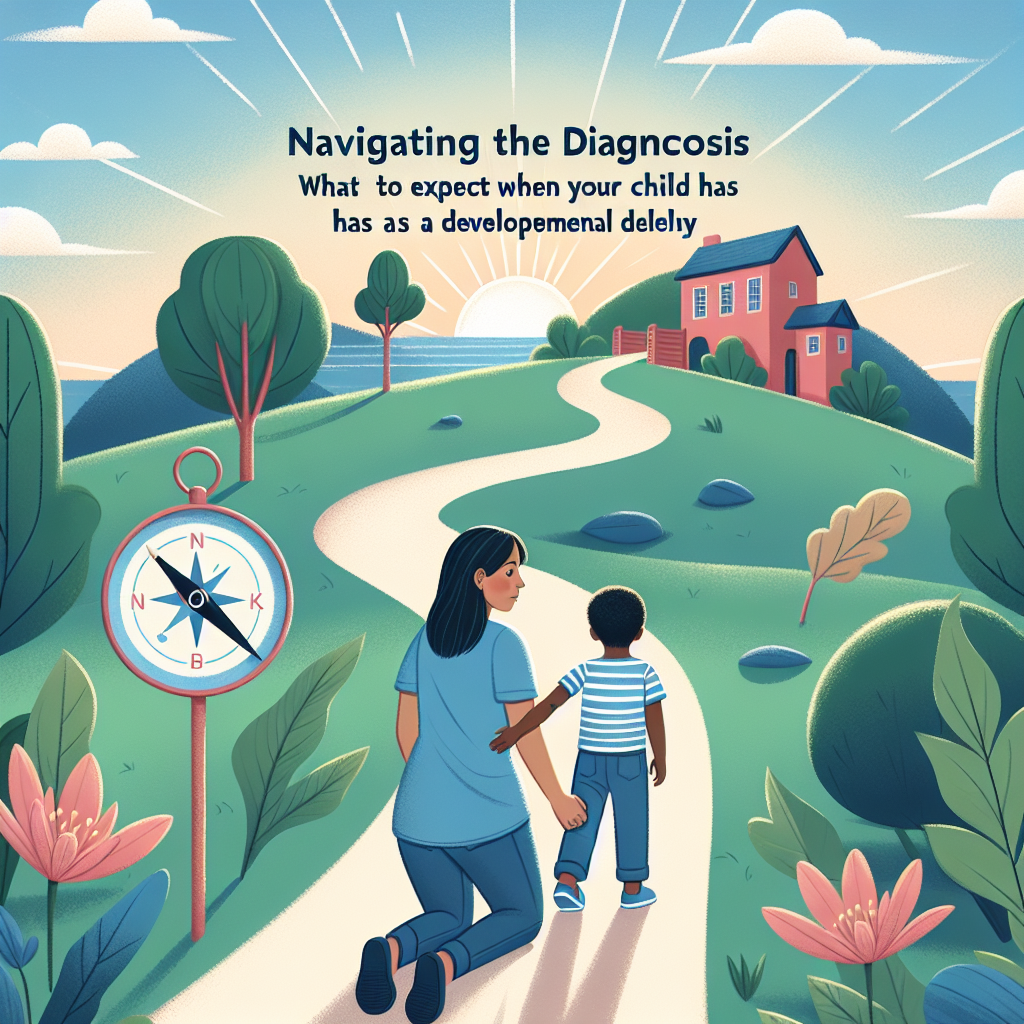
Introduction
When a parent hears the phrase “developmental delay,” it can feel overwhelming. The journey of navigating the diagnosis can be fraught with uncertainty, fear, and a dozen questions racing through the mind. Yet, this journey can also be the beginning of empowerment and advocacy for your child. In this comprehensive guide, Navigating the Diagnosis: What to Expect When Your Child Has a Developmental Delay seeks to illuminate the paths available, demystify the diagnostic process, and provide tools for support and understanding.
Understanding Developmental Delay
What is Developmental Delay?
Developmental delay refers to a significant lag in a child’s physical, cognitive, behavioral, or emotional development compared to peers. It’s essential to recognize that developmental delays aren’t a one-size-fits-all diagnosis. They’ll vary widely, influencing each child in unique ways.
Key Signs and Symptoms
Identifying a developmental delay can often be the first step toward addressing a child’s needs. Here are some common signs:
| Age Range | Typical Milestones | Delayed Development Signs |
|---|---|---|
| 0-12 Months | Responds to name, smiles, sits up | Not making eye contact, not smiling |
| 1-2 Years | Walks, says a few words | Not walking or babbling at 15 months |
| 2-3 Years | Begins to play with others | Not playing pretend, limited vocabulary |
| 3-4 Years | Forms simple sentences | Difficulty following instructions, avoiding social interactions |
Recognizing these signs is crucial. The sooner you act, the sooner you can get your child the support they may need.
The Diagnostic Journey
Seeking Help: The First Steps
When you notice signs of delay, the natural question is, “What’s next?” The initial step is to consult a pediatrician. This professional can evaluate your child’s development and may refer you to specialists, such as a developmental pediatrician, psychologist, or speech therapist.
Diagnostic Tests and Assessments
Most doctors recommend a series of tests to accurately gauge the extent of any delay. These may include:
Developmental Screening: A short test used to see if the child is learning basic skills when they should.
Comprehensive Evaluation: A deeper dive that may include interviews, standardized tests, and observations from parents and teachers.
- Medical Tests: Evaluations like genetic testing or brain scans to rule out other conditions.
Case Study: Ella’s Experience
Ella, a 3-year-old girl, was referred for testing after her preschool teacher noted her struggles with speech and interaction. The diagnostic team performed a comprehensive evaluation that revealed a speech delay. The team worked with Ella’s parents to create a tailored speech therapy plan, demonstrating how a thorough diagnostic approach can lead to effective, individualized strategies.
Treatment and Support Options
Early Intervention is Key
Once a diagnosis is made, the focus shifts to treatment. Early intervention services can lead to significantly better outcomes. These services may include:
- Therapies (speech, occupational, physical)
- Special Education services
- Family Support and Education programs
Creating an Individualized Education Plan (IEP)
For school-aged children, an IEP is integral. This legal document outlines specific learning goals and the services the school will provide.
Case Study: Liam’s Transformation
Liam was diagnosed with a moderate developmental delay at five. Thanks to his IEP, he received specialized classroom support and speech therapy. By the end of the school year, Liam was not only meeting some of his goals but also forming friendships—a testament to the power of early intervention and tailored strategies.
Resources and Support Networks
Finding the Right Resources
In your journey of Navigating the Diagnosis: What to Expect When Your Child Has a Developmental Delay, consider reaching out to organizations such as:
- The CDC (Centers for Disease Control and Prevention)
- NICHCY (National Dissemination Center for Children with Disabilities)
- Local support groups and online forums
These resources can offer guidance, support, and community connection.
Building a Support Network
Connecting with other parents can be incredibly beneficial. Sharing experiences, challenges, and victories creates a sense of community that no parent should navigate alone. Social media groups and local organizations can help facilitate these connections.
The Emotional Impact
Navigating Your Own Expectations
The diagnosis of a developmental delay can elicit a flood of emotions—fear, sadness, confusion, and even hope. Acknowledging these feelings can be vital in moving forward. It’s essential to understand that you are not alone in these feelings, and seeking counseling can help.
Case Study: Sarah’s Reflection
Sarah shared her journey of coming to terms with her son’s diagnosis. Through therapy and support groups, she learned to view her child’s unique needs as opportunities for growth and development rather than setbacks.
Creating a Positive Environment
Building Resilience at Home
Creating a nurturing and supportive home environment is fundamental. Here are some strategies:
Celebrate Small Wins: Every milestone, big or small, is worthy of recognition.
Foster Independence: Encourage your child to try new tasks independently, even if it takes longer.
- Establish Routines: Predictable routines can provide a sense of security for children with developmental delays.
Case Study: Mark’s Growth at Home
Mark, who has autism, thrived in his family’s structured routine involving daily activities and play. His parents documented his progress in a “success journal,” emphasizing each step taken. This positive reinforcement, tailored to his needs, contributed to Mark building confidence over time.
Conclusion
Navigating the Diagnosis: What to Expect When Your Child Has a Developmental Delay is a process filled with numerous steps—each one essential not just to your child’s growth, but to the entire family’s evolution. Embracing this journey means seeking help, building networks, fostering resilience, and celebrating milestones.
As daunting as this journey may seem, it’s also imbued with hope. Every child is unique, and navigating their needs, strengths, and dreams can lead to profound discoveries and cherished moments of connection.
FAQs
1. What are the early signs of developmental delay?
Common signs include failing to meet developmental milestones, difficulty with speech or behaviors, and challenges in learning through play.
2. When should I seek help for my child?
If you have concerns about your child’s development, it’s best to consult a healthcare provider as soon as possible.
3. How do I prepare for a developmental evaluation?
Collect information on your child’s development, bring any previous evaluations, and be ready to discuss your concerns candidly.
4. What services are available for children with developmental delays?
Services may include early intervention programs, therapy sessions, and special education services.
5. How can I support my child at home?
Engage in play, celebrate progress, establish routines, and share experiences with other parents for support.
By understanding these elements and actively participating in your child’s journey, you can create a stronger foundation for their future success. The path forward might not always be straightforward, but the love and commitment you invest today will yield extraordinary returns for your family.














